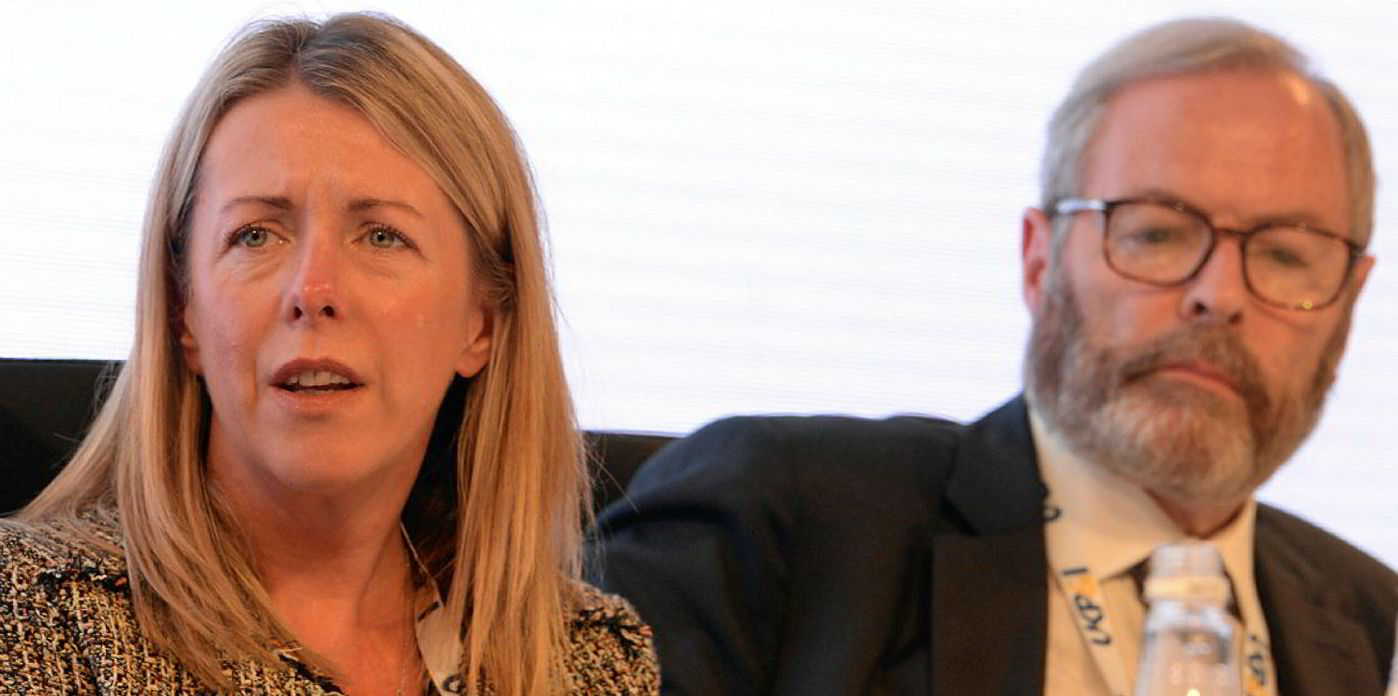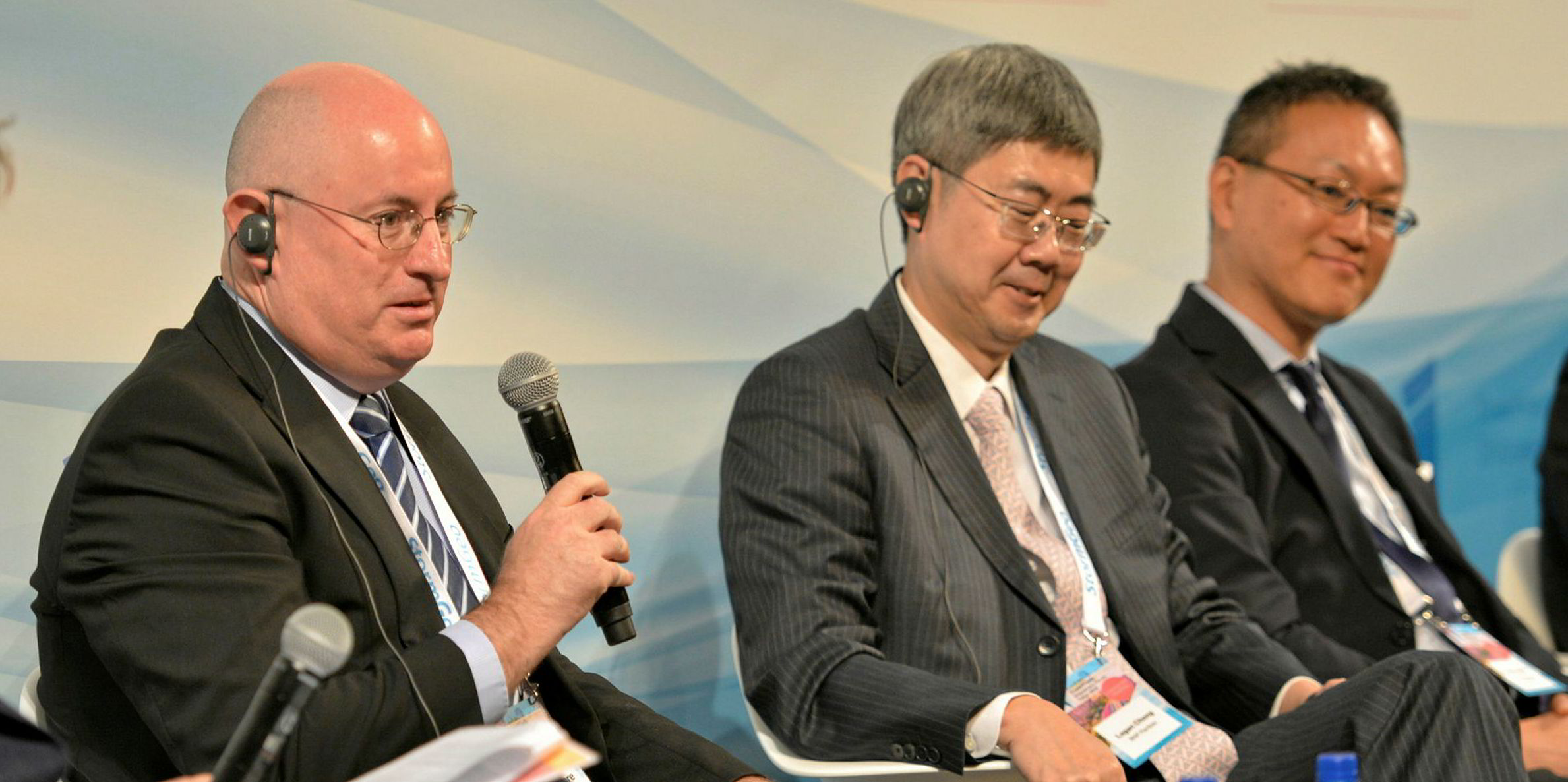Two more giant European banks have signed up to the Poseidon Principles — and backers of the initiative now have their sights set on big Chinese lenders.
BNP Paribas — which is by one measure the world’s largest lender to shipping — and leading wealth manager Credit Suisse became the 15th and 16th signatories.
Credit Suisse is seen as important due to its relationship with some major Greek shipowners.
Michael Parker, chairman of Citigroup’s logistics and shipping unit, and the key architect of the Poseidon Principles, described the latest signings as “very, very significant”.
With BNP Paribas and Credit Suisse onboard, the Poseidon Principles represent $140bn in loans to shipping — about 30% of the global ship finance portfolio.
The initiative is confident more shipping lenders will sign up to the programme to benchmark the carbon pollution from their portfolios in the next two to three months.
As the new signings show, the programme has been well backed by Scandinavian and other European lenders but has so far failed to win signatories from Asia, particularly China.
Critics of the initiative have questioned its credibility if it fails to secure backing from Chinese lenders, which account for a significant and rising share of the global ship finance market.
Parker said a number of Asian and Chinese lenders are close to agreeing to sign. “They will all be there by the end, we are convinced of it,” he told TradeWinds on the fringes of the Marine Money London Ship Finance Forum 2020.
“We do want all the Chinese lenders and lessors to sign up to the Poseidon Principles.

“We have held very constructive meetings with many of them and are confident of their interest and understanding of the issues at the highest levels. We hope to have a number of institutions signed up in the next two or three months.”
TradeWinds reported this week that one Chinese lessor was open-minded about joining the programme, but it had not been formally invited.
“I can confirm that,” said an executive of Shanghai’s Bank of Communications Financial Leasing (Bocomm Leasing), which is one of the two biggest ship finance lessors, along with Beijing’s ICBC Leasing.
“We will sign the Poseidon Principles if someone asks more partners to join. Maybe only banks have been asked to join at the first stage, I’m not sure.
“We have been invited to join several conferences, but so far I have not been invited to join. But I will join if I am asked.”
'Genuinely interested'
Lindsey Keeble, head of shipping at law firm Watson Farley & Williams, said in December that after meetings in Shanghai with several leasing house executives, she believed they were genuinely interested in the principles.
She attributed the fact that none had yet joined to the laborious process of getting the green light from institutional management.
We have been invited to join several conferences, but so far I have not been invited to join. But I will join if I am asked
Bocomm Leasing executive
Chinese leasing houses that look to banks, including those in the West, to fund their spending are likely to move more quickly because they rely on the participation of sponsors of the Poseidon Principles, she commented.
An official at shipbuilder-owned CSIC Leasing agreed with this assessment.
“If all the banks are in this programme, the leasing companies will also join, because many of us get most of our money from these banks,” the executive said.
Other ship finance sources added that a signature by the Export-Import Bank of China (China Exim Bank) would be an important signal to leasing houses.
China Exim Bank shipping deputy general manager Gao Zefeng told TradeWinds last week that his bank has had information meetings with the Poseidon Principles backers and is studying the proposal.
Parker said further signatures are expected in the near future. A European export credit agency may sign this month, with a first Japanese bank perhaps by the end of the first quarter. Other institutions in Singapore, Japan and South Korea are studying the initiative.
The Poseidon Principles are intended to benchmark the carbon emissions of the ships on lenders’ portfolios to the IMO’s trajectory to cut pollution by 50% by 2050.
They will use the data all shipowners are now required to file with the IMO about performance.
Parker said the programme was working to complete its data handling processes.
A leading classification society is building a blockchain-enabled platform to perform the calculations required, and discussions with other class societies to adopt the technology are underway.
Quick clarification
If they cannot reach agreement, Parker said two other providers have offered their own solutions. “We will clarify that [issue] very quickly.”
Paul Taylor, head of shipping at Societe Generale and another of the Poseidon Principles founders, said: “The data collection question is very, very straightforward.”
He acknowledged that those involved in the programme would need to continue to explain its purpose and how it will work.
“There has been some misunderstanding of the detail of how the principles work, but we are working to help educate and inform potential partners.”








